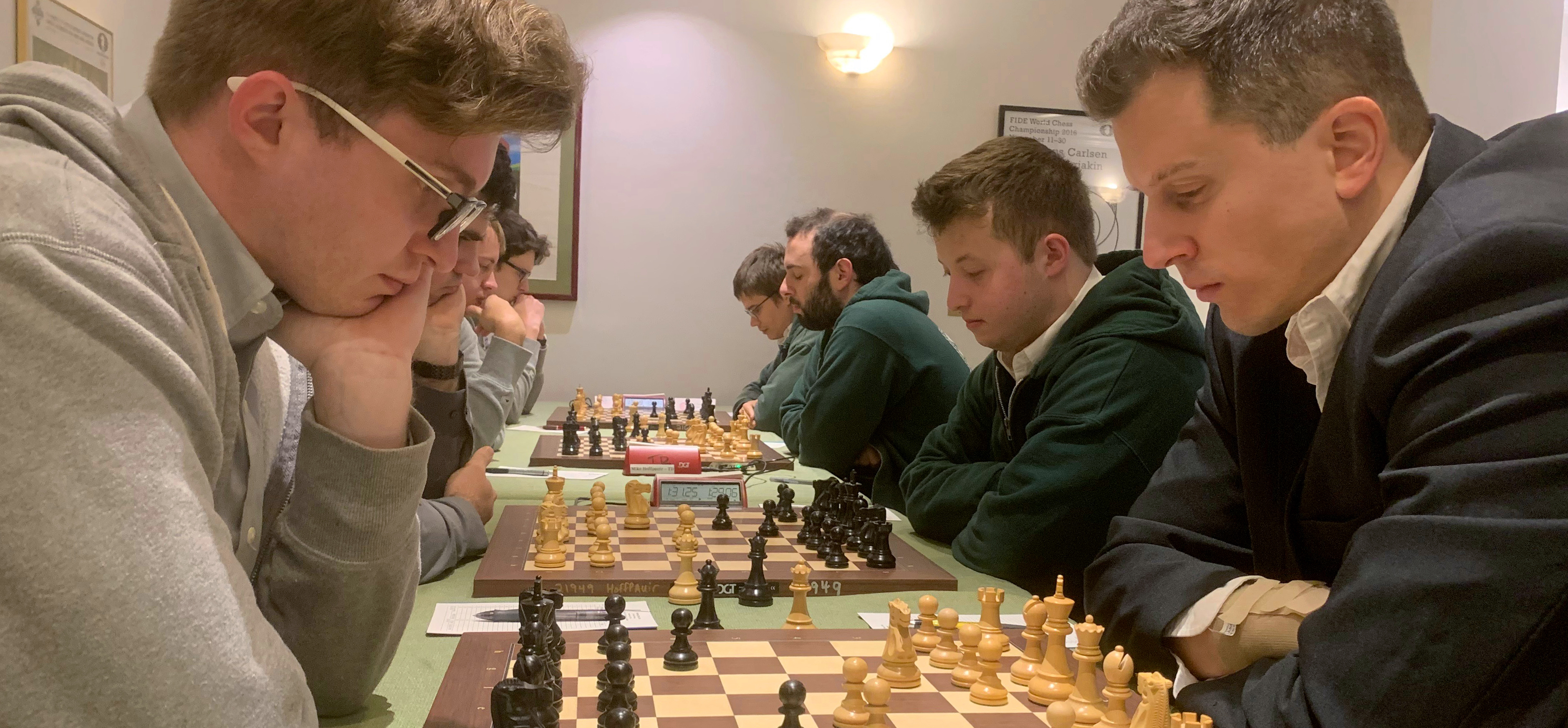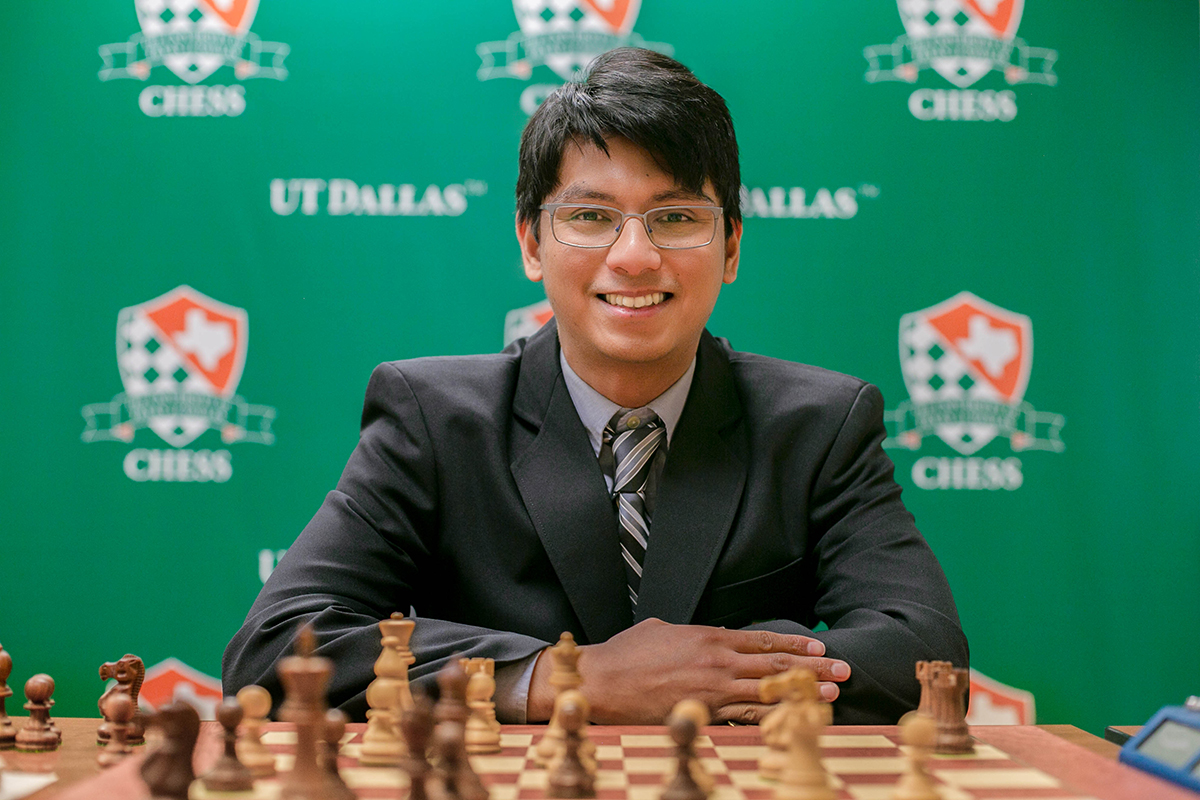
Chess Team Creates Winners
The University of Texas at Dallas chess team is known for winning. In addition to securing four national collegiate championships and going to the “Final Four” chess tournament 16 times, some former team members are now coaching other college chess programs, while others are making their mark in the business and tech worlds.
With an eye on sharing its cultural richness and academic excellence, UT Dallas in 1996 was one of the first universities in the country to create a competitive, scholarship chess program. That soon resulted in national championships and some of the best chess players in the world working in campus laboratories and earning their degrees.
“The UT Dallas chess team is a model for intercollegiate competition,” said Dr. Hobson Wildenthal, executive vice president at UT Dallas. “Its team members are serious students, admitted to the University under the same rigorous academic standards as the rest of the student body. Upon graduation, they obtain gainful employment in high-tech fields, including engineering, business, economics, and arts and technology.”
Recently, chess team alumnus Julio Catalino Sadorra BS’13 was named coach of the team, filling the shoes of Rade Milovanovic, who retired after 20 years.
Just six weeks into Sadorra’s tenure, in April the team finished third at the President’s Cup, informally known as the Final Four of College Chess, which determines the U.S. college chess champion. Coming in as the third seed, UT Dallas beat Harvard University, played Webster University to a draw and lost to the eventual champion, UT Rio Grande Valley.

Julio Catalino Sadorra BS’13
When he was a student, Sadorra played in the Final Four twice as a member of the UT Dallas team. After graduating with a degree in business administration, he began teaching chess while also playing professionally. He represented his home country of the Philippines at the World Cup Chess Championship and the international Chess Olympiad, where he played against some of the best players in the world.
In 2016 Sadorra played Magnus Carlsen, the top-ranked player in the world, to a draw.
“I was able to prove that anyone who is willing to consistently work hard and to compete with the proper mindset has a chance to equal the world champion,” Sadorra said.
“I was able to prove that anyone who is willing to consistently work hard and to compete with the proper mindset has a chance to equal the world champion.”
Julio Catalino Sadorra
Impact Beyond UT Dallas
In the past 10 years, as additional colleges began offering scholarships and stepping up their recruiting, UT Dallas chess alumni have been significantly
involved in the growing competitiveness of collegiate chess.
Of the relatively small number of U.S. chess programs that offer scholarships, three of them (including UT Dallas) are coached by UT Dallas alumni. Besides Sadorra, Alejandro Ramirez BA’09, MA’11 is the coach at Saint Louis University, and Cristian Chirila BA’14 is the inaugural coach of the new competitive chess program at the University of Missouri. All three are Grandmasters, which is the highest level a chess player can attain.
“While there are still a fair number of alumni who play chess, it’s not easy to make a living with chess. So it’s great that these three coaches all graduated from UT Dallas and are able to work in chess,” said Jim Stallings, UT Dallas Chess Program director.
UT Dallas ensures that chess team members balance their chess play with academics, which allows players to go on to successful careers in various fields. International Master Dmitri Shneider BS’07 has worked for JPMorgan Chase & Co. for 11 years, first in New York and now in Hong Kong. He said chess players possess certain qualities that lead to success in their careers.
“There definitely are attributes, such as analytical thinking and sizing up the opponent, that help chess players make good decisions. It’s a hard game, and it takes a lot of preparation,” said Shneider, who was captain of the chess team and president of the chess club while earning his finance degree at UT Dallas.
In addition to persistence and analytics, Stallings said chess builds character. “Chess builds strong ego. In chess, you’ve got to be able to absorb losses and keep on going. It’s not easy,” he said.
Ramirez, now at Saint Louis University, said UT Dallas’ chess success has come about because it is doing things the right way, from the natural support system that
players have with each other to the intentional recruiting of the best players in the world.
“The UTD chess program was a pioneer in everything that is scholarship-related,” said Ramirez. “They established the baseline on how to do it—how to attract
players and how to have a competitive chess team. They really believe in their program.”
“In the last six, seven years, many other collegiate programs have popped up, basically trying to take those lessons that UTD has given us. As somebody who was part of the chess team, I know firsthand how a chess program can attract great minds that benefit the university and also benefit the world of chess.”
Shneider said that beyond career success, team members build strong personal relationships that last for years and also help in recruiting future
team members.
“Before we attended UT Dallas, we all knew at least one person who previously attended and played chess here. So those relationships can be helpful in attracting
good chess talent,” he said. “The fact that the school recognizes chess and provides the resources for players to succeed as students is what I think ultimately leads to
success outside of the university and outside of chess.” – Phil Roth


